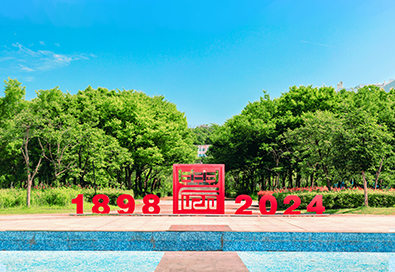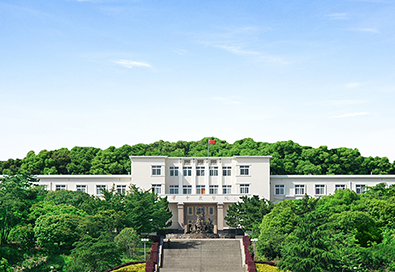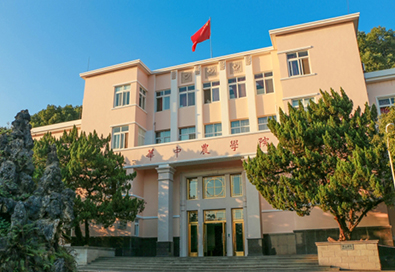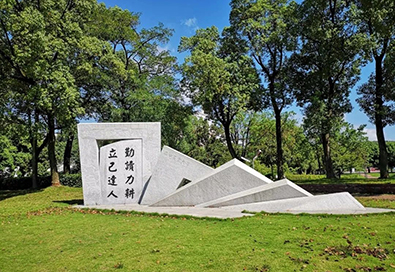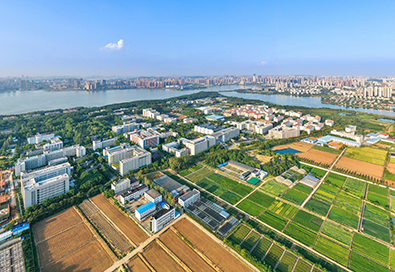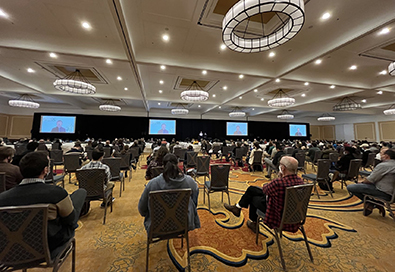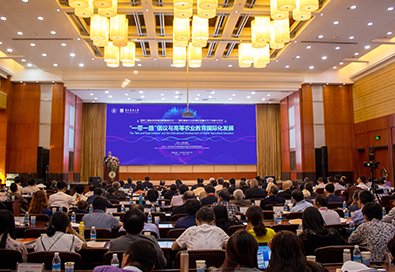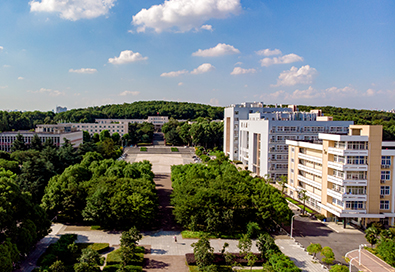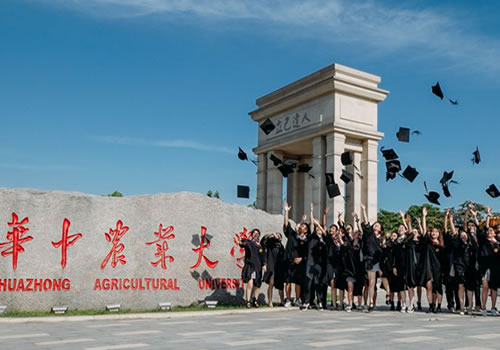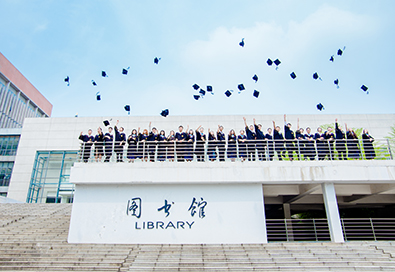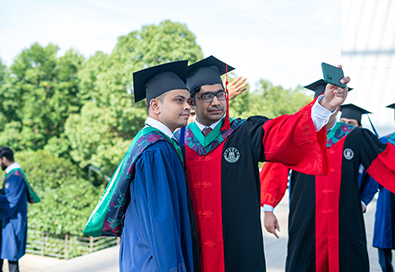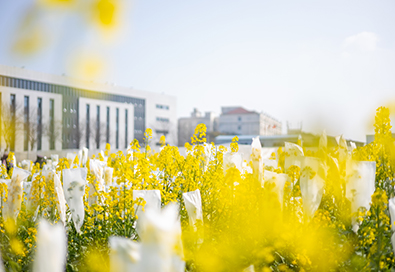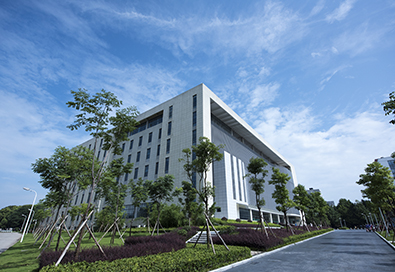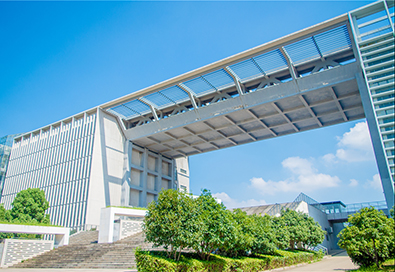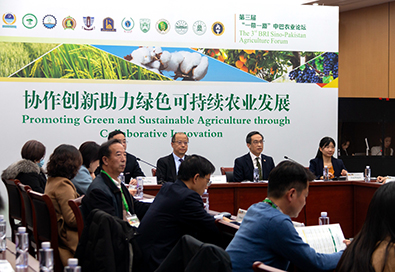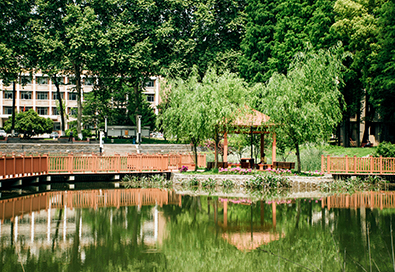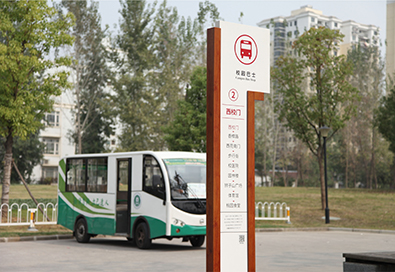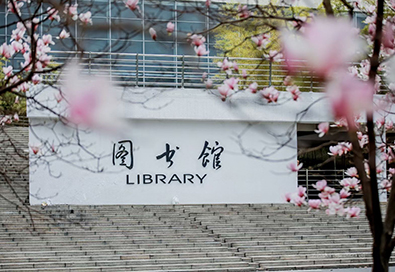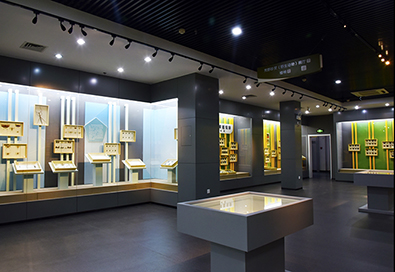The University has four national experimental teaching demonstration centers covering the fields of biology, crop science, aquaculture and veterinary medicine, and 10 provincial experimental teaching demonstration centers.
National Experimental Teaching Demonstration Center for Biology
Administered under the College of Life Science and Technology, the National Experimental Teaching Demonstration Center of Biology (hereinafter referred to as the center) was originally known as the Biological Experimental Teaching Center in July 2001. It was approved as the construction unit of the National Experimental Teaching Demonstration Center in 2007 and received the Ministry of Education approval in 2012. The center comprises eight laboratories, covering microbiology, microbial technology, plant morphological anatomy and classification, plant microtechnology, cell and genetics, biochemistry and molecular biology, bioinformatics, innovation and entrepreneurship, and a modern bioengineering practice training base.
With a laboratory area of nearly 5,000 square meters and a modern bioengineering practice training base, the center is equipped with advanced resources valued at 39.9 million yuan. There are 78 teachers directly involved in the development of experimental courses and practice teaching in the whole college, including 34 professors and 37 associate professors.
The center offers 47 experimental courses to 19 majors (including graduate students). They include College of Life Science and Technology, College of Plant Science and Technology, College of Horticulture & Forestry Sciences, College of Food Science and Technology, College of Resources and Environment, Science College and College of Informatics. There are 20 independent courses and 190 experimental projects.
National Experimental Teaching Demonstration Center of Crop Science
Administered under the College of Plant Science and Technology, the National Experimental Teaching Demonstration Center of Crop Science traces its roots to the Experimental Teaching Center of Crop Science established in 2002. Designated as the National Experimental Teaching Demonstration Center in 2008, it received the Ministry of Education approval in 2012.
Relying on three key laboratories and engineering centers, including the national first-class key disciplines of crop science, the key disciplines of plant protection in Hubei province and the State Key Laboratory of Crop Genetic Improvement, and 10 provincial and ministerial key laboratories and R&D centers, the center carried out teaching and research activities.
The center has more than 5,000 square meters of experimental teaching rooms and 36,533 square meters of experimental practice base. Experimental teaching platforms include plant physiology and biochemistry, microscopic observation, molecular and biotechnology, plant protection platform, intelligent agriculture, crop science and seed science, pesticide, edible fungi production and processing training and college students' innovation experimental platform. It is equipped with more than 3,900 sets of experimental instruments and equipment with advanced functions and sufficient quantity, and more than 40 sets of large-scale instruments and equipment with unit price of over 200,000 yuan. They have a total value of over 50 million yuan.
The center offers 72 experimental practice courses for nearly 20 majors such as plant production, agronomy, plant protection, planting, horticulture and forestry, involving nearly 500 experimental projects.
National Experimental Teaching Demonstration Center for Aquaculture
The National Experimental Teaching Demonstration Center for Aquaculture (Huazhong Agricultural University) is administrated under the College of Fisheries. The center was formerly the experimental practice platform for recruiting undergraduates majoring in aquatic products in 1972. In 2004 the Aquaculture Experimental Teaching Center was formally established. In 2010, it was approved as the construction unit of the National Experimental Teaching Demonstration Center, and it received Ministry of Education approval in 2012. The aquaculture major supported by the center was selected as an excellent agricultural and forestry talent training project in 2014 and a national first-class undergraduate professional construction site in 2019. Aquarium science and technology was selected into the "Jingchu Excellent Talents" collaborative education program project in 2018, the first-class undergraduate major construction site in Hubei province in 2020 and the national first-class undergraduate major construction site in 2022. The center has seven sets of functional laboratories, two on-campus teaching practice bases, a training base for agricultural science and education cooperation talents and more than 20 off-campus contracted teaching practice bases.
The center covers an area of about 3,306.4 square meters, all of which are equipped with multimedia network systems, which fully realize 24-hour online reservations. There are 3,131 teaching instruments and equipment with a total value of over 73.03 million yuan. Every year, the center offers 28 offline experimental courses and nearly 200 experimental projects, with more than 1,400 students. The center has built seven national first-class courses, eight first-class courses in Hubei province, 12 virtual simulation experimental projects with independent intellectual property rights, and 10 MOOC online courses in Chinese universities. These resources are widely used in the practical teaching of aquatic products for majors in agricultural and forestry universities across the country.
National Experimental Teaching Demonstration Center of Veterinary Medicine
The National Experimental Teaching Demonstration Center of Veterinary Medicine is administrated under the College of Animal Science and Technology, College of Veterinary Medicine. The center boasts nine functional laboratories, including animal morphology, animal function, microbiology and immunology, animal epidemiology, food safety and veterinary drug residue analysis, Chinese veterinary medicine, veterinary clinical diagnostics, veterinary internal medicine and veterinary exogenous science. The center has two internal practice bases, including National Bio-industry Base (Wuhan) Experimental Animal Center and Animal Hospital.
With a total area of nearly 5,720 square meters, the center has more than 2,500 advanced experimental instruments and equipment, such as CT, nuclear magnetic resonance, color Doppler ultrasound, gel imaging system, and fluorescence quantitative PCR instrument, with a total value of 48.84 million yuan. The center teaches students majoring in animal science, animal medicine, aquaculture, biotechnology, etc. Every year, it offers 73 experimental courses for more than 4,700 undergraduates.

